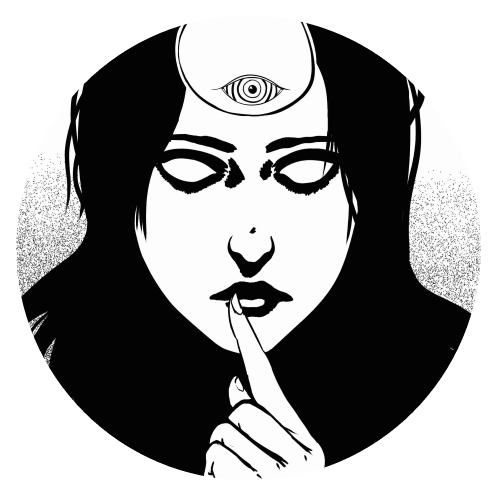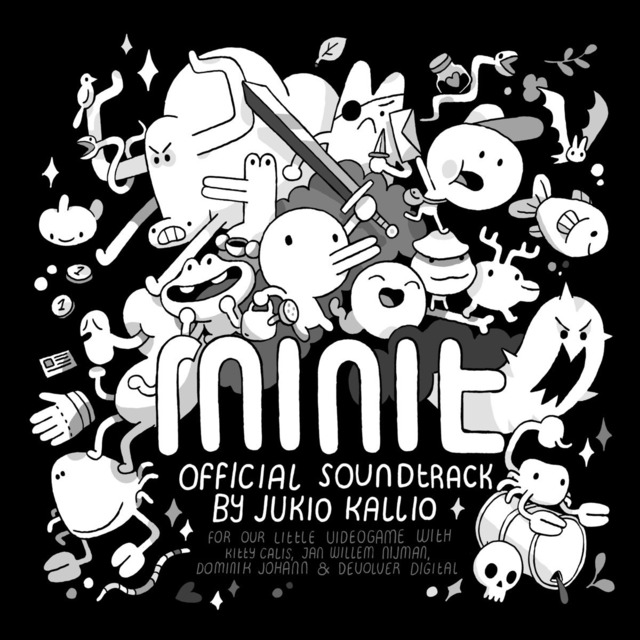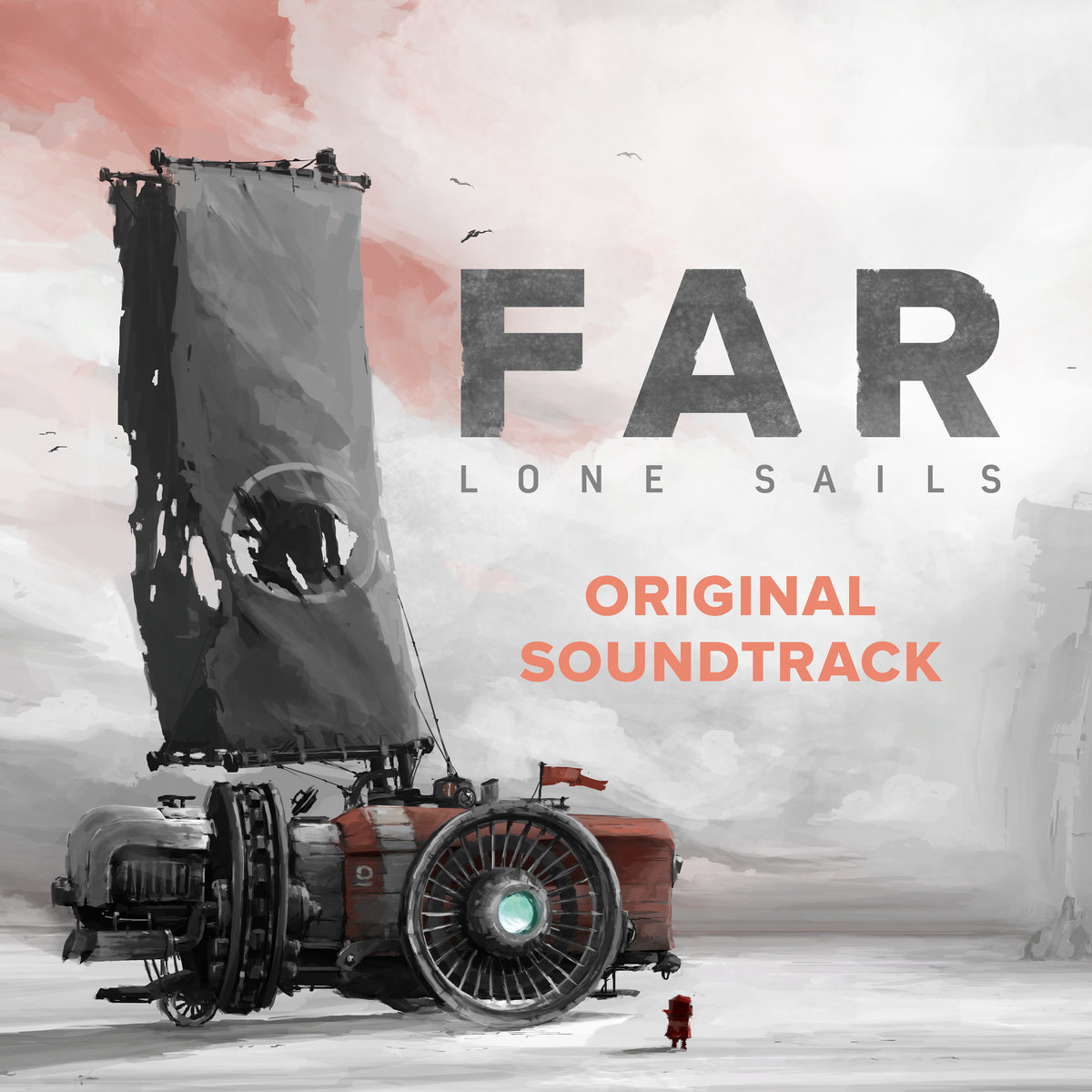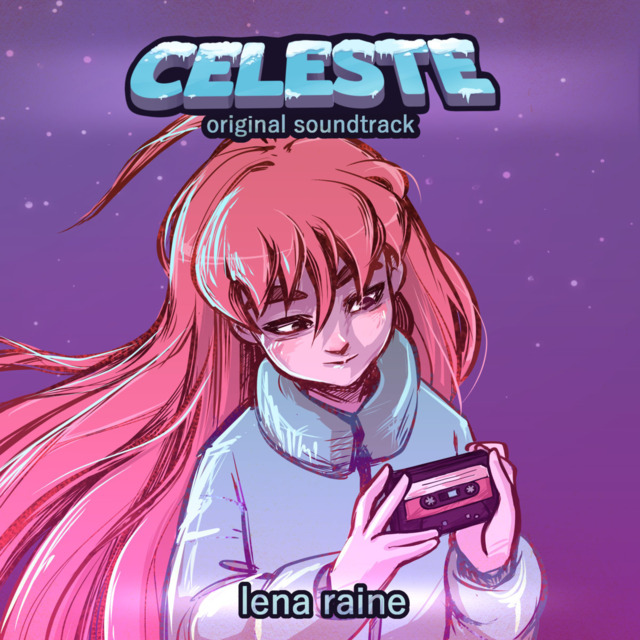
Xeecee is an artist and Hildegard von Bingen stan living in the Pacific Northwest. They post about video game soundtracks and classical music in between drawing the comic Magpies and co-hosting the Harry Potter podcast for jaded ex-fans, The Shrieking Shack. You can buy their art on shirts if you like it, or commission them for something specific.
Hello everyone. I haven’t done one of these lists before, and it’s a lot more formal than I’m used to writing since I’ve been gradually brain-poisoned by Twitter. I dunno how remarkable or kvlt my list is, but I had a good time compiling it. If you want maybe some more unique takes, I post a lot about metal and classical online, so follow me if that’s your kind of thing.
10. Minit

You might think a game that wears its visual influences on its sleeves so proudly would have a more restrained soundtrack, but Jukio Kallio’s score is way wider in scope than the charming minimalist visuals. The catchy 8-bit melodies you’d expect at first glance are definitely there, but they’re accompanied (and sometimes even buried) by a motley crowd of strings, horns, synth pads, hand claps, guitar licks, and all manner of other instruments all at once. It’s joyous and layered and often extremely funny. There’s even a parody black metal track!
https://jukiokallio.bandcamp.com/track/jukebox-black-metal
9. NieR Orchestral Arrange Albums
This is cheating a little bit, but these are a pair of video game music albums from 2018 and I can’t not write about them. Both NieR games have inspired multiple arranged albums in the wake of their releases--piano albums, remix compilations, concert albums, etc etc--but this is by far the best installment. You might be skeptical at first; after all, one of the strengths of the NieR scores is how eclectic they are. NieR:Automata’s original score was this close to sounding like something that belonged in the 4AD catalog circa 1989, so is boxing it into a stricter orchestral format a good idea?
Turns out yeah, it is. The tracks that already leaned more into symphonic grandeur, like Snow in Summer, sound great, but the real stars here are the creative ways the arrangers interpreted the weirder tracks. The Tower transforms from murky new age ambience into something almost Wagnerian. Without pumping electronic bass and drums, A Beautiful Song sounds fit for a sword-and-sandal adventure movie. The real star of the show, however, is The Wretched Automatons. It’s reimagined as baroque chamber music by trading its trademark anvils for a harpsichord, and really drives home just how good these scores are.
8. World of Warcraft: Battle for Azeroth
To my mind, the best World of Warcraft soundtrack is still The Burning Crusade. It sounds like a lost Pete Namlook project in some spots, and I’ve always sort of resented the series for straying away from electronic ambience. That being said! Battle for Azeroth’s score is really, really good, and maybe the closest the series has come to the eclectic mix of genres in the earlier expansions. It has a strong sense of identity: the horde side’s score is all warm and catchy, adorned with pan flutes, shakers, conga drums, and endless earworm melodies. The Alliance zones, on the other hand, oscillate between towering brass arrangements and romantic string sections.
The whole score teeters on the edge of self-parody--several Alliance songs sound like they’re about to burst into the Pirates of the Caribbean theme at any moment and one Horde theme is practically a track from The Wind Waker wearing a fake mustache--but that’s honestly way more charming than the expansion itself, which is, well... hmm.
7. Octopath Traveler
Speaking of self-parody, yo, have you heard the Octopath Traveler final boss theme? The entire game’s aesthetic is devoted to creating a 16-bit RPG that looks and sounds the way you might remember your favorites clouded by years of nostalgia, and the soundtrack nails this. A lot of the most famous JRPG soundtracks are defined by their excess: classic tracks like Dancing Mad sound like prog-rock masterpieces shoved into an unwilling sound chip. Octopath Traveler’s soundtrack, on the other hand, dares to dream. What if a '90s JRPG could just have whatever sounds the composer wanted? What if this boss theme had more drummers than Slipknot and a church organ in it? What if there was a choir and an opera singer?
While the entire soundtrack isn’t all as over the top as The One They Call The Witch, it’s a good measuring stick for the spirit of the whole thing. Many JRPG soundtracks are blends of prog-rock, classical, and world music--and lord knows, Octopath isn’t even close to being the first game to try and evoke the soundtracks of 16-bit classics--but Yasunori Nishiki’s work here really nails it. It feels simultaneously tongue-in-cheek and incredibly earnest.
6. Return of the Obra Dinn
This game consists entirely of black and white “1-bit” visuals for an eerie effect that often suggests more gory details than you can actually see. Its soundtrack has the same ethos. It’s as stark as it gets, with simple (but booming) percussion, jagged string melodies, and blaring horns. There’s a lot of negative space where you might expect other instruments to come in, but these brutish elements are pretty much all you get for the whole score. It works really well in tandem with the monochromatic graphics.
It might be the hardest thing on this list to listen to divorced from the actual game--but on the flip side, it’s does some of the heaviest lifting in-game of any of the scores listed here.
5. FAR: Lone Sails

FAR: Lone Sails is a game I’m pretty sure a lot of people haven’t played yet that might be making bigger waves next year. Kinda like Hollow Knight this year? It’s a weird, clever game where you awkwardly pilot a large vehicle ever forwards through a lonesome world. The music is mournful and jazzy, perfectly fitting for the gray beaches and large stretches of flat landscape in the distance throughout the game. It’s a great rainy day album in its own right!
https://farlonesails.bandcamp.com/track/colored-engine
4. Tetris Effect
I don’t have too much to say here except that video games are way overdue for the return of trance, drum n’ bass, and big beat, and Tetsuya Mizuguchi is a hero for continuing to bear this torch.
3. Red Dead Redemption 2
The first Red Dead Redemption’s score was great, so I wasn’t really surprised to find out that the sequel’s score was also excellent. What I was surprised by is just how different it was. When it was announced Woody Jackson would be helming the soundtrack production again, I figured we were going to get an “if it ain’t broke, don’t fix it” follow-up. Instead, much like the game itself, Red Dead Redemption 2’s score is much slower, far more methodical, and much less rooted in the spaghetti western aesthetic than its predecessor.
I must admit it was odd watching the Game Awards and hearing the cues they chose to represent the game with whenever it appeared on stage, especially when it was up for best soundtrack. The strengths of the score, in my opinion, aren’t the showy Emotional Moment songs or the twangy western showstoppers; they’re the ambient acoustic drones heard while poking around in the wilderness, and the light organ flourishes while running away from wolves in the snow, or how distant saxophones are added in the modern city of Saint Denis. There’s not much catchy in the soundtrack that I love, but there are so many textures and moods that I can’t get out of my head that do 10 times the emotional heavy lifting than Rockstar’s wobbly script.
I saw a lot of grousing from friends and peers--rightfully, honestly--about Red Dead’s suffocating, uncritical presence at the Game Awards. It doesn’t feel right for me to talk about the game on a best-of list without acknowledging the writing done by people much smarter than me on the issues surrounding it, but I also can’t deny that I loved the score.
2. Deltarune
I don’t need to write anything about Deltarune’s soundtrack i’m just gonna link to rude buster:
https://tobyfox.bandcamp.com/track/rude-buster
1. Celeste

Celeste is a game I came to really late this year, but I’m so, so glad I got around to it, not least of all because of the score. While there’s lots to praise generally about it--I mean, it just goes honestly--in particular there’s one track that affected me more than anything else in a game this year: Resurrections. For starters, if you haven’t played the game you really should, as the scene this track scores is completely excellent; but even on its own, it’s a pretty staggering song. In particular, the first movement’s mix of romantic piano and chilly synthesizer just grabs me every time.
As AAA games get more and more expensive and realistic, the emotional balance in story driven games is starting to even out between writing, performance, animation, music, and so on. What’s fascinating about games outside that space is how resonant they can manage to be without the budget (or even the desire) to perfectly render a character’s facial expression or find the best actors to read the best lines. Sometimes a game has to or wants to work within smaller confines, with different pieces shifting in and out of bearing the emotional load. Without spoiling anything, the level morphs from a cold and mysterious exploration taken at the player’s own pace to high-stakes chase sequence with a sudden musical transition. Not much in gameplay changes; the level itself isn’t radically different. The characters get a chance to talk in-between gameplay segments, but in the moment, the music turns the whole thing into a horrorshow. It’s by far the most haunting piece of music I’ve heard in a game all year.